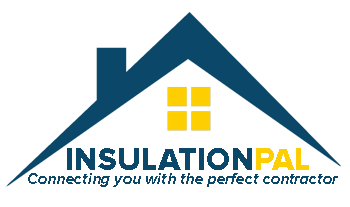Fire Resistant Insulation: Definition and What it is
Insulation materials designed to resist fire and slow flame spread, meeting strict safety standards.
What is Fire Resistant Insulation?
Fire-resistant insulation is specifically designed to slow or prevent the spread of fire, providing critical protection for occupants and property. These materials meet stringent fire safety standards and are rated by their ability to withstand flames, resist ignition, and limit smoke production.
Fire ratings for insulation are classified from Class A (highest) to Class C. Class A materials have a flame spread index of 0-25 and smoke-developed index of 0-450. Fire-resistant insulation not only protects during a fire event but also maintains its thermal performance and structural integrity at high temperatures. Common applications include commercial buildings, multi-family housing, garage ceilings, and areas requiring fire breaks.
Fire-Resistant Insulation Materials
- Mineral Wool (Rockwool): Non-combustible up to 2,150°F, Class A fire rating
- Fiberglass: Class A fire rating, melts at high temps but doesn't support combustion
- Treated Cellulose: Borate-treated for Class A fire resistance
- Closed-Cell Spray Foam: Class A when properly applied with ignition barriers
- Intumescent Coatings: Expands when heated to create protective char layer
When Fire-Resistant Insulation is Required
Building codes mandate fire-resistant insulation in specific applications: garages attached to living spaces, multi-family dwellings, commercial buildings, and fire-rated assemblies. Even when not required, fire-resistant insulation adds valuable protection in high-risk areas. Mineral wool offers the best fire performance, followed by treated cellulose and fiberglass. Always pair fire-resistant insulation with proper air sealing and fire-rated construction details for complete fire protection.
Benefits of Fire Resistant Insulation
- Slows fire spread, providing crucial escape time
- Maintains structural integrity longer during fires
- Reduces smoke production and toxic fumes
- Meets or exceeds building code fire safety requirements
- Adds property protection and liability reduction
- May reduce insurance premiums
- Peace of mind for families and building owners
Fire Resistant Insulation Cost
Fire-resistant insulation costs vary by material, with mineral wool commanding a premium over standard fiberglass.
- Material type (mineral wool: $1.50-$3/sq ft; treated cellulose: $1.20-$2.50/sq ft)
- Fire rating requirements (Class A vs. Class B)
- Installation complexity and fire-stop detailing
- Building code compliance requirements
- Potential insurance discounts offsetting costs
How InsulationPal Can Help You
InsulationPal connects you with licensed, experienced insulation contractors. Compare multiple quotes to get the best value for your project.
Free Quotes: Get multiple competitive quotes from pre-screened contractors.
Expert Matching: We match you with pros experienced in fire resistant insulation.
Quality Assurance: Licensed, insured, and verified contractors.
Related Services and Resources
Explore all services we offer
Expert guides and tips on insulation
